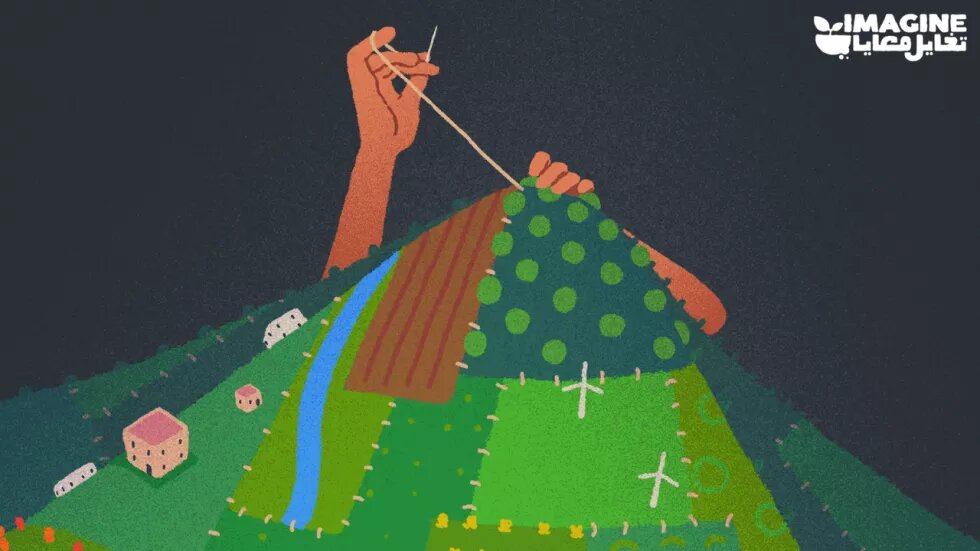Imagining the city of the future has been one of the difficult tasks I had to complete in a long time. It entails getting rid of all the constraints that tied my imaginary of the Moroccan city in a set of a zoning codes, regulations, and technocratic processes.

Imagining the city of the future has been one of the difficult tasks I had to complete in a long time. It entails getting rid of all the constraints that tied my imaginary of the Moroccan city in a set of a zoning codes, regulations, and technocratic processes. Also, it entails imagining the city, not through its physical environment, but rather through its people. The city of the future lies in imagining what people can accomplish not only as individuals, but also as a part of the different communities they belong to.
Therefore, I believe that the narrative of cities in Morocco post covid-19 implies revisiting an important concept that I think is critical to ensuring resilient cities post-crisis. The concept of the commons that entails community ties, shared resources, and ‘autonomous’ governance’, or as referred to by Ananya Roy the ‘popular agency’. This concept is revisited through what I believe to be foundational in ensuring resilient and equitable cities—the decommodification of land. The latter entails a change in security tenure and land ownership from an individual and capitalist system to collective forms of property. This change aims at localizing the means of production—be it for food, housing, or labor, within one geographical area, in this context the country of Morocco. It also entails the enhancement of solidarity between individuals and communities for a greater resilience.
Indeed, I imagine that once the land loses its value as a commodity, issues related to displacement and food security might be addressed or at least mitigated, and so is urban poverty and precarity. In fact, housing, as well as food security could be highly improved by the decommodification of land. Once the land loses its value as a commodity, the displacement of precarious urban populations towards the urban fringes is disincentivized, and so is the use of fertile soil for sprawling urban development. This means that not only the disenfranchised communities have equal rights to the city, but it also implies that natural areas such as fertile agricultural land and forests can be preserved, thus ensuring sustainable growth and food security.
In order to achieve the de-commodification of land, through collective ownership, I suggest here below three main principles. First, land should be owned by all citizens of the country, and simultaneously, every citizen owns a ‘potential’ equal share of the land. This entails that nor state institutions, or corporations can privately own land in the country, and that all the profits made from income-generating activities are equally redistributed. This also implies that no individual can claim the private property of a piece of land, despite ‘owning’ it. The second principle is the education around the importance of land and its preservation. The rapid urbanization and the growing importance of cities created a detachment between individuals and the means of production of essential needs such as food. The education around the importance of land for urbanites, aims at reviving the bond between the latter and the land, and can be achieved through “Nature Civil Service” programme/training. Youth from the age of 18 to 25, living in Moroccan cities must complete between six to twelve months of agricultural activities to learn how to grow food, preserve local and regional seeds, as well as forests. The third principle falls under the urban agriculture category and calls for the enhancement of the availability of urban land lots in all cities, especially cities with high poverty indexes, to ensure food security for the poorest. In fact, the main concern of the poorest family heads during the COVID-19 pandemic was the access to food for them and their families. Allowing communities and households to grow food, reduces their precariousness and their vulnerability to shocks and uncertainties.
These principles, centered around brining back the land to the realm of commons, aim also at reinforcing social solidarity. Indeed, the idea of the commons cannot be achieved without an awareness of the importance of maintaining and preserving community ties. It also requires a consciousness of the importance of working towards the common good. As much as the de-commodification of land sounds as a radical idea that would be met by the opposition of all those who generate large profits from land, such a radical action embodies important outcomes for the future of resilient cities, and most importantly food security.
Final note: The idea of the decommodification of land in the Moroccan context, as an idea and ideal for me, is inspired from the activism and the resistance of Imider villagers, and their fight for the redistribution of resources in their region.